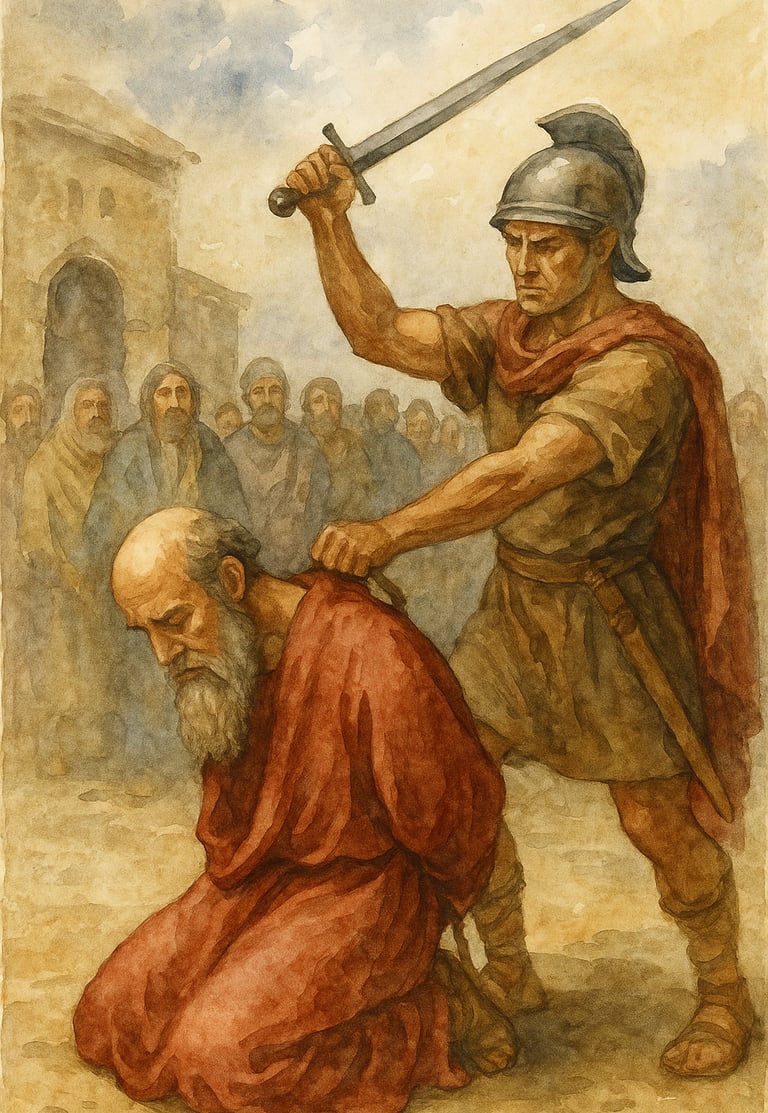St. Paul
From Persecutor to Apostle
Halo & Light Studios
6/28/20252 min read


Click Link for a reel of Daily Dose of Saints and Faithful Art:
https://youtube.com/shorts/_-N-sladZTE
Few figures in history have undergone a transformation as dramatic—and as influential—as that of St. Paul the Apostle.
Born Saul of Tarsus around 5 AD in the Roman province of Cilicia (modern-day Turkey), he was a devout Jew, a Pharisee, and a Roman citizen—an uncommon and powerful combination in the 1st century. Educated under the respected rabbi Gamaliel in Jerusalem, Saul was deeply committed to preserving Jewish tradition. He saw the early Christian movement as a dangerous heresy—and acted accordingly.
Saul's reputation as a persecutor of Christians was well known. The Book of Acts recounts that he was present at the stoning of St. Stephen, the first Christian martyr, and actively sought to imprison believers.
But en route to Damascus, everything changed.
According to early Christian sources, Saul was struck by a blinding light and heard the voice of Jesus Christ: “Saul, Saul, why are you persecuting me?” (Acts 9:4). This moment of divine encounter altered the course of his life—and Christian history. Baptized shortly thereafter, Saul took the name Paul and became Christianity’s most tireless evangelist.
Over the next three decades, Paul traveled more than 10,000 miles across the Roman Empire—on foot and by sea—preaching Christ crucified. He established Christian communities in Asia Minor, Greece, and eventually Rome, often writing letters to guide them. Thirteen of these epistles are preserved in the New Testament, shaping the theological and moral foundation of Christianity.
Paul was not just a theologian. He was a bridge-builder—defending the full inclusion of Gentile converts and confronting issues of division within the Church. He participated in the Council of Jerusalem alongside Sts. Peter and James, affirming the unity of the Church.
Paul was eventually arrested and executed by beheading in Rome under Emperor Nero around 67 AD, a martyrdom traditionally believed to have occurred near the Via Ostiensis.
Today, St. Paul remains one of the most prolific and powerful voices of the early Church, a reminder that even the fiercest enemies of truth can become its greatest champions.
